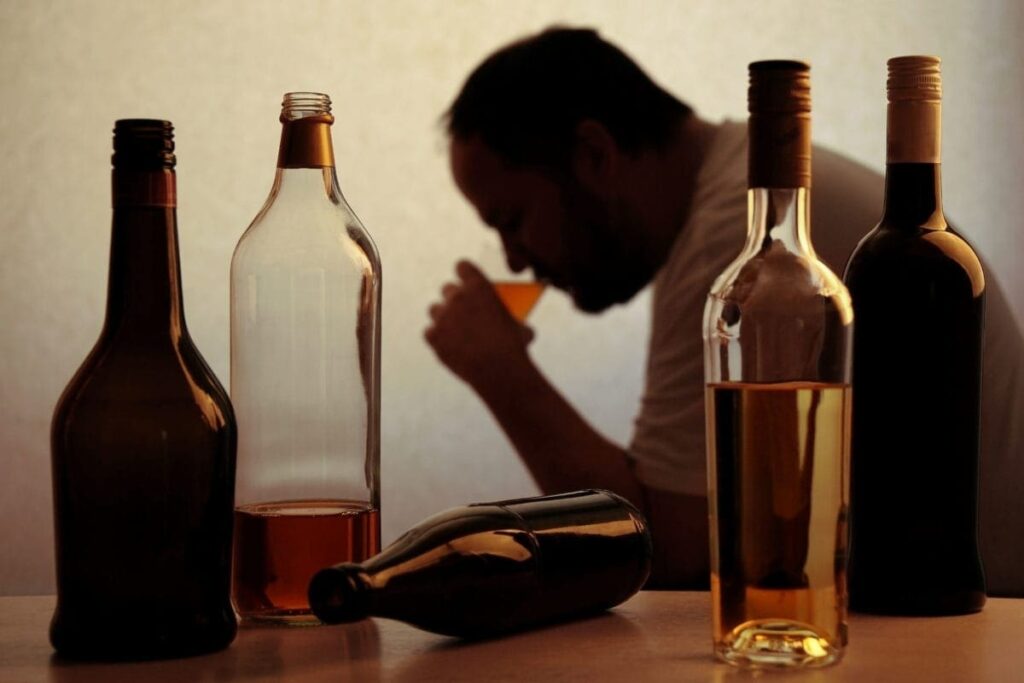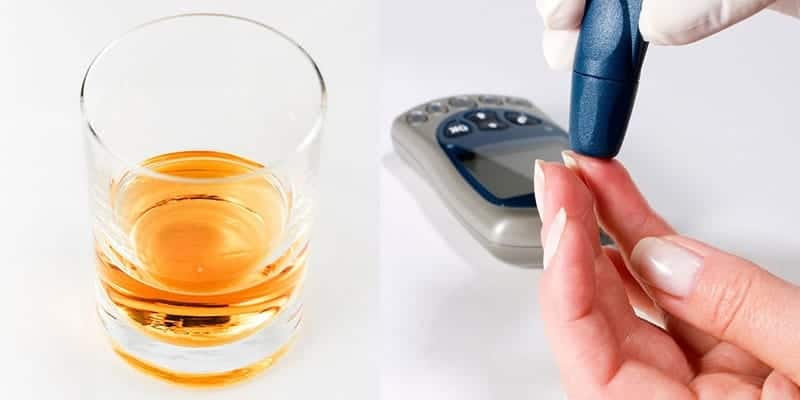Alcohol and Type 2 diabetes: it sounds like an odd couple, right?
One is a health condition that requires discipline and care in managing blood sugar levels, while the other often finds its way into social gatherings, weekend barbecues, and cozy nights by the fireplace. But what happens when these two meet?
Does alcohol throw a party with your blood sugar, or is it a recipe for disaster?
In this article, bestdietarysupplementfordiabetics.com shall explore how alcohol affects blood sugar in individuals with Type 2 diabetes, the hidden dangers, and how to enjoy an occasional drink without sending your glucose levels into a tailspin.
Article Index:
- The Basics: How Alcohol Interacts with Blood Sugar
- Why People with Type 2 Diabetes Need to Be Extra Cautious
- The Liver’s Role: When Alcohol Takes Over Blood Sugar Management
- Different Alcoholic Drinks, Different Effects
- Real-Life Examples: How People with Type 2 Diabetes Handle Alcohol
- The Research: What Science Says About Alcohol and Type 2 Diabetes
- How to Safely Enjoy Alcohol if You Have Type 2 Diabetes
- FAQs on Alcohol & Type 2 Diabetes
- Conclusion: Balancing Alcohol and Type 2 Diabetes – A Solution
The Basics: How Alcohol Interacts with Blood Sugar
Let’s start with the science behind it all.
Alcohol, when consumed, has a complex interaction with your body’s blood sugar regulation system.
Normally, your liver helps maintain steady blood sugar levels by releasing glucose. However, when alcohol enters the scene, the liver prioritizes breaking down alcohol over managing glucose.
This can cause blood sugar levels to drop significantly, especially if you haven’t eaten in a while. Hence, alcohol and diabetes 2 can sometimes be a volatile mix.
In fact, a study from the American Diabetes Association (ADA) states that alcohol consumption can lead to hypoglycemia (low blood sugar) in people with Type 2 diabetes. But it is not all doom and gloom—moderation and knowledge are key to safely drinking alcohol with diabetes type 2.
Why People with Type 2 Diabetes Need to Be Extra Cautious?
If you have Type 2 diabetes, your body already has trouble regulating blood sugar efficiently.
Adding alcohol to the mix can create an extra layer of complication. Alcohol affects the liver’s ability to produce glucose, which can result in unexpected swings in blood sugar.
This can be especially dangerous if you are taking insulin or other medications that lower blood sugar levels, as the combination of alcohol and these drugs can lead to severe hypoglycemia.
For instance, if you are at a party enjoying a couple of drinks, you may not notice your blood sugar dropping because the symptoms of low blood sugar—like dizziness, confusion, or sweating—can mimic the effects of alcohol itself.
Real-World Example:
Imagine Mark, a 45-year-old man with Type 2 diabetes who enjoys a few beers during his weekend football gatherings.
He does not eat much while drinking, and a couple of hours later, he feels lightheaded and confused.
He assumes it’ i the alcohol kicking in, but in reality, his blood sugar has plummeted. He ends up needing medical attention to stabilize his levels.
Lesson learned:
Alcohol consumption and type 2 diabetes require careful management and awareness.
The Liver’s Role: When Alcohol Takes Over Blood Sugar Management
Your liver is the unsung hero when it comes to regulating blood sugar, but alcohol throws a wrench into its system.
When alcohol is consumed, the liver shifts its focus to metabolizing alcohol rather than producing glucose, which could lead to a dangerous drop in blood sugar levels.
The liver cannot multitask like we might hope—it has to pick one or the other, and alcohol wins every time.
According to Dr. M. Emanuele in the Journal of Clinical Endocrinology and Metabolism, this prioritization can be problematic, especially when individuals with Type 2 diabetes consume alcohol without food, as there’s no backup source of glucose to keep blood sugar steady.
Different Alcoholic Drinks, Different Effects
Not all alcoholic drinks are created equal when it comes to their impact on blood sugar.
Some can send your glucose levels soaring, while others can cause them to plummet. Understanding how various types of alcohol affect your body is crucial for people with diabetes.
- Beer and diabetes type 2: Beer, for example, contains carbohydrates that can raise blood sugar. While light beer may have fewer carbs, it can still contribute to an unexpected glucose spike.
- Wine: Wine, especially red wine, tends to have a lesser impact on blood sugar, and some studies even suggest moderate consumption might have heart-health benefits for people with diabetes.
- Spirits: Hard liquors, such as vodka or whiskey, do not contain carbs, but if you are mixing them with sugary sodas or juices, watch out! That’s a fast track to a blood sugar rollercoaster.
Lisa’s Story:
Lisa, a 38-year-old woman with Type 2 diabetes, thought switching to wine would solve her problem.
She was careful not to overdrink but did not realize her sweet sangria was packed with sugar, causing her blood sugar to spike unexpectedly.
Lisa learned that choosing dry wine and skipping the mixers was a much better option.
Real-Life Examples: How People with Type 2 Diabetes Handle Alcohol
People with diabetes type 2 have shared varying experiences with alcohol.
Some swear by eating before drinking, while others keep glucose tablets on hand.
Moderation is the common thread across all success stories. Individuals like John, who enjoys a small glass of whiskey after dinner, have learned to avoid drinking on an empty stomach and always check their blood sugar before bed.
Then there is Sarah, a Type 2 diabetic who enjoys social drinking but has cut back on beer after noticing significant blood sugar spikes.
Instead, she opts for a gin and soda with no added sugar.
Sarah checks her blood glucose levels regularly and makes sure to eat a balanced meal before any social drinking occasion. She also avoids back-to-back drinks, pacing herself to keep her body in balance.
The Research: What Science Says About Alcohol and Type 2 Diabetes?
Scientific studies have delved deep into the relationship between alcohol and diabetes risk.
For instance, a 2017 study in the journal Diabetologia found that moderate alcohol consumption might actually lower the risk of developing Type 2 diabetes.
But before you raise a glass to that, the keyword here is moderate.
The same study points out that heavy drinking increases the risk of complications, including blood sugar spikes and drops.
Moreover, the American Heart Association has emphasized that excessive drinking leads to an increased risk of developing cardiovascular complications, which are already a concern for those with Type 2 diabetes.
Therefore, the balance between moderation and overindulgence is a delicate one.

How to Safely Enjoy Alcohol if You Have Type 2 Diabetes?
So, can you enjoy alcohol if you have Type 2 diabetes?
Yes, but with a few important precautions.
Here are some tips to safely enjoy an occasional drink without compromising your blood sugar control:
- Eat before you drink: Food helps buffer the effects of alcohol on blood sugar. Stick to a balanced meal rich in fiber and protein.
- Monitor your glucose: Always check your blood sugar before, during, and after drinking to ensure you’re staying within a safe range.
- Pace yourself: Slow down. Drinking too quickly can lead to blood sugar swings.
- Choose your drinks wisely: Opt for alcohol diabetes 2 friendly drinks like dry wines or spirits mixed with sugar-free sodas.
- Be mindful of medication interactions: Talk to your healthcare provider about how your diabetes medications interact with alcohol. Also try and include a blood sugar support formula into your diet.
FAQS on Alcohol and Type 2 Diabetes
Balancing Alcohol with Diabetes
So, what is the final verdict on alcohol for Type 2 diabetes?
You do not have to give up alcohol entirely, but moderation is key.
By understanding how alcohol interacts with your body and taking steps to mitigate risks, you can enjoy the occasional drink without wreaking havoc on your blood sugar levels.
Remember, your liver is working hard to keep you balanced, so do not make its job harder by drinking on an empty stomach or indulging in sugary mixers.
A balanced approach to alcohol consumption and type 2 diabetes can help you navigate social situations while keeping your health in check.
References:

